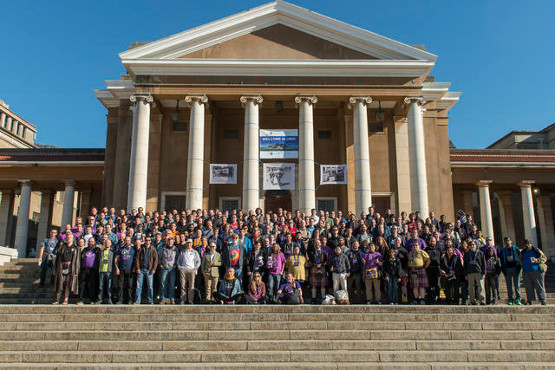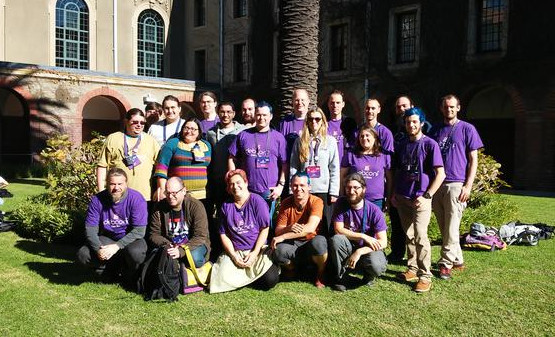Jonathan Carter: A few impressions of DebConf 16 in Cape Town
 DebConf16
Firstly, thanks to everyone who came out and added their own uniqueness and expertise to the pool. The feedback received so far has been very positive and I feel that the few problems we did experience was dealt with very efficiently. Having a DebConf in your hometown is a great experience, consider a bid for hosting a DebConf in your city!
DebConf16 Open Festival (5 August)
The Open Festival (usually Debian Open Day) turned out pretty good. It was a collection of talks, a job fair, and some demos of what can be done with Debian. I particularly liked Hetzner s stand. I got to show off some 20 year old+ Super Mario skills and they had some fun brain teasers as well. It s really great to see a job stand that s so interactive and I think many companies can learn from them.
DebConf16
Firstly, thanks to everyone who came out and added their own uniqueness and expertise to the pool. The feedback received so far has been very positive and I feel that the few problems we did experience was dealt with very efficiently. Having a DebConf in your hometown is a great experience, consider a bid for hosting a DebConf in your city!
DebConf16 Open Festival (5 August)
The Open Festival (usually Debian Open Day) turned out pretty good. It was a collection of talks, a job fair, and some demos of what can be done with Debian. I particularly liked Hetzner s stand. I got to show off some 20 year old+ Super Mario skills and they had some fun brain teasers as well. It s really great to see a job stand that s so interactive and I think many companies can learn from them.
The demo that probably drew the most attention was from my friend Georg who demoed some LulzBot Mini 3D Printers. They really seem to love Debian which is great!At #Debconf? Join the #HetznerSA #Supermariobros challenge and stand a chance to win a case of #Leagueofbeers pic.twitter.com/DpkOj6wmZb HetznerSA Careers (@HetznerCareers) July 2, 2016
LulzBot Mini #3Dprinters were on the scene at @DebConf Open Festival in South Africa. We re powered by @debian! pic.twitter.com/AOBS64ZtiJ LulzBot (@lulzbot3D) July 13, 2016DebConf (6 August to 12 August) If I try to write up all my thoughts and feeling about DC16, I ll never get this post finished. Instead, here as some tweets from DebConf that other have written:
@o0karen0o delivering today s #DebConf16 keynote pic.twitter.com/hG1wD5MBhH Michael Banck (@mbanck) July 3, 2016
Great to see Sicelo Mhlongo speaking about issues using @debian in Swaziland #debconf16 pic.twitter.com/U6z7HA8zd5 Neil McGovern (@nmcgovern) July 7, 2016
What happened at #DebConf16 yesterday? Sandstorm Principles talking about the freedom to choose #software #sandbox pic.twitter.com/ltYaw3dAmP Obsidian Systems (@obsidianza) July 5, 2016
All @DebConf end with similar feelings: we re an incredible crowd working together for a incredibly important cause. https://t.co/DYuUWT5eKt Didier Raboud (@OdyX_) July 9, 2016
My congratulations to the #DebConf video team. As usual, they are doing an amazing work at #DebConf16Day Trip We had 3 day trips:
Marcelo Santana (@mgsantana) July 8, 2016
- Trip out to sea point and penguin spotting (Dominic Hargreaves has some beautiful photos up on Flickr)
- Hike up Table Mountaing to Kirstenbosch gardens
- Safari tour (I went on this one and you can see some of my photos on Gallery)
- DebCamp: 31 July to 4 August 2017
- DebConf: 6 August to 12 August 2017
- More details on the DebConf Wiki.
- Official (and some unofficial) photos are on the DebConf gallery site (you can add yours, too)
- All official DebConf videos can be found on the video meeting archives


 My recent Debian LTS activities
My recent Debian LTS activities
